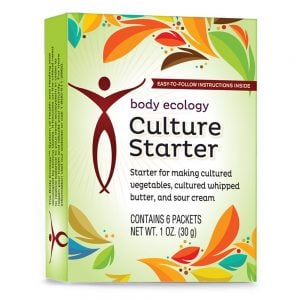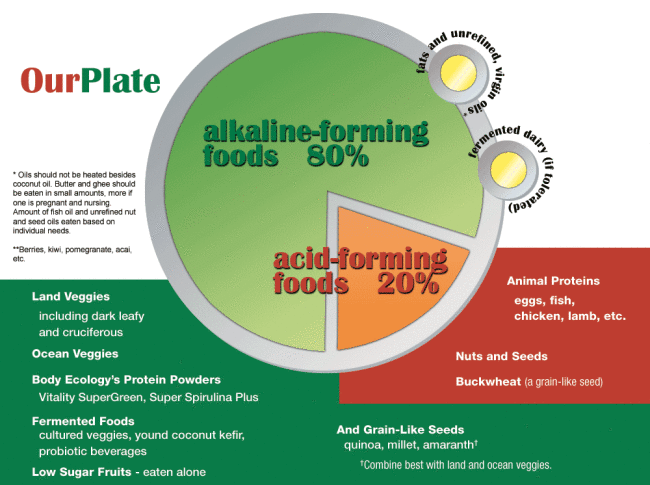Pregnant? How to Help Prevent a Dangerous Choline Deficiency
Choline is especially important in protecting the integrity of our DNA—it supports cell metabolism and cell division.
When it comes to tasks like forming a new baby, nourishing brain cells, detoxifying the body, or making sure that tissue is free of cancer—choline is critical.
While the body can make small amounts of choline, it isn’t enough to support our daily requirement. This is especially true for women during pregnancy and while nursing.
You Might Have a Choline Deficiency

Did you know that fetal tissue contains 14 times more choline than a mother’s blood? Choline during pregnancy is essential to a baby’s brain development. Choline-rich foods like egg yolk are best digested when eaten with fermented vegetables, made from the Veggie Culture Starter.
Studies estimate that roughly 90% of pregnant women in the United States are not meeting recommended choline intake levels. (1) Most prenatal vitamins do not contain this essential nutrient.
The current Adequate Intake (AI) for choline is:
- 450 mg if you are pregnant or trying to get pregnant
- 550 mg if you are nursing
What’s more, it seems that the recommended choline intake isn’t enough for the optimal health of your baby. (2) Research shows that even consuming slightly more than the recommended intake (480 mg) still may not be enough to sustain adequate choline reserves. (3)
Choline moves through the placenta and concentrates in your growing baby. Fetal tissue contains 14 times more choline than the mother’s blood.(4)
Here’s why choline is important for the development of your baby:
- Women eating diets that contain little choline are at a greater risk for having a baby with neural tube defect or cleft palate. (5)(6)
- Choline also influences the development of your baby’s brain, improving memory and the ability to manage stress. (7)(8)(9)
Choline Deficiency During Pregnancy: Where to Find Dietary Choline
Choline is a nutrient that works best within a network of other like-minded nutrients—like B-complex vitamins and a micronutrient called betaine (found in high amounts in spinach and beets).
This means that the best way to get choline is through food.
Foods are naturally equipped with co-factors that support many systems within the body. Per gram of food, animal foods contain significantly more choline than plant foods. (10)
The richest sources of choline include:
- Beef and chicken liver
- Egg yolk
- Caviar, or fish roe
We suggest pairing choline-rich animal protein with alkaline vegetables, fermented vegetables, and ocean vegetables.
Remember, on The Body Ecology Diet, approximately 20% of the foods on your plate should be acid-forming and contracting, while the remaining 80% should be alkaline-forming and expansive: 
Raw cultured vegetables are expansive in nature. They make an ideal balance to the contracting power of choline-rich animal proteins, like eggs. Fermented vegetables are also full of enzymes, which help with the digestion of animal protein. If you have a hard time digesting animal protein, it’s wise to include a digestive enzyme with HCL and pepsin.
Soft Scrambled Eggs Recipe
Eggs are one of the best sources of choline, concentrated in the yolk. This is one reason why we love Soft Scrambled Eggs, which calls for two additional egg yolks per egg.
Ingredients:
- 1 tbsp. coconut oil or ghee
- 2 whole eggs plus 4 egg yolks
- Splash of filtered water (to replace some missing whites)
- Herbamare, dulse flakes, or sea salt, to taste
Directions:
- In a bowl, combine eggs and water.
- Lightly beat with a whisk or fork.
- Over low to medium-low heat, melt coconut oil or ghee in a skillet.
- Add eggs; using a flexible spatula, stand over the pan and carefully scrape eggs away from pan just as they stick to bottom and edges of pan.
- When eggs are only two-thirds done, season lightly with sea salt, dulse flakes, or Herbamare. Remove skillet from heat.
- Place eggs back into the bowl you mixed them in and toss, allowing residual heat to continue cooking eggs.
What To Remember Most About This Article:
Choline is essential to protect the integrity of DNA, which is especially important when forming a new baby. The body makes small amounts of choline, although it isn’t enough to meet daily requirements. Pregnant and nursing women need to focus on choline in the diet most of all.
The majority of pregnant women may be at risk for choline deficiency. Research estimates that up to 90% of pregnant women in the United States do not meet recommended choline intake levels. Pregnant women need 450 mg of choline per day; nursing mothers need 550 mg per day.
Choline is vital to a baby’s brain development and is best found in the diet. Rich sources of choline include beef and chicken liver, egg yolk, and caviar. Choline-rich animal protein should be paired with alkaline vegetables, fermented vegetables, and ocean vegetables. You can also take a digestive enzyme with HCL and pepsin to make it easier to digest animal protein—the health of mother and baby depend on it.
- [product id=”22″]
- [product id=”14″]
- [product id=”1″]
- [product id=”43″]
REFERENCES:
- Jensen, H. H., Batres-Marquez, S. P., Carriquiry, A., & Schalinske, K. L. (2007). Choline in the diets of the US population: NHANES, 2003–2004. FASEB J, 21, lb219.
- Yan, J., Jiang, X., West, A. A., Perry, C. A., Malysheva, O. V., Devapatla, S., … & Caudill, M. A. (2012). Maternal choline intake modulates maternal and fetal biomarkers of choline metabolism in humans. The American journal of clinical nutrition, 95(5), 1060-1071.
- Yan, J., Jiang, X., West, A. A., Perry, C. A., Malysheva, O. V., Brenna, J. T., … & Caudill, M. A. (2013). Pregnancy alters choline dynamics: results of a randomized trial using stable isotope methodology in pregnant and nonpregnant women. The American journal of clinical nutrition, 98(6), 1459-1467.
- Zeisel, S. H. (2013). Nutrition in pregnancy: the argument for including a source of choline. International journal of women’s health, 5, 193.
- Shaw, G. M., Carmichael, S. L., Yang, W., Selvin, S., & Schaffer, D. M. (2004). Periconceptional dietary intake of choline and betaine and neural tube defects in offspring. American journal of epidemiology, 160(2), 102-109.
- Shaw, G. M., Carmichael, S. L., Laurent, C., & Rasmussen, S. A. (2006). Maternal nutrient intakes and risk of orofacial clefts. Epidemiology, 17(3), 285-291.
- Boeke, C. E., Gillman, M. W., Hughes, M. D., Rifas-Shiman, S. L., Villamor, E., & Oken, E. (2013). Choline intake during pregnancy and child cognition at age 7 years. American journal of epidemiology, kws395.
- Cermak, J. M., Holler, T., Jackson, D. A., & Blusztajn, J. K. (1998). Prenatal availability of choline modifies development of the hippocampal cholinergic system. The FASEB journal, 12(3), 349-357.
- Jiang, X., Yan, J., West, A. A., Perry, C. A., Malysheva, O. V., Devapatla, S., … & Caudill, M. A. (2012). Maternal choline intake alters the epigenetic state of fetal cortisol-regulating genes in humans. The FASEB Journal, 26(8), 3563-3574.
- Williams, J. R., Holden, J. M., Zeisel, S. H., & Mar, M. H. (2004). USDA database for the choline content of common foods.








